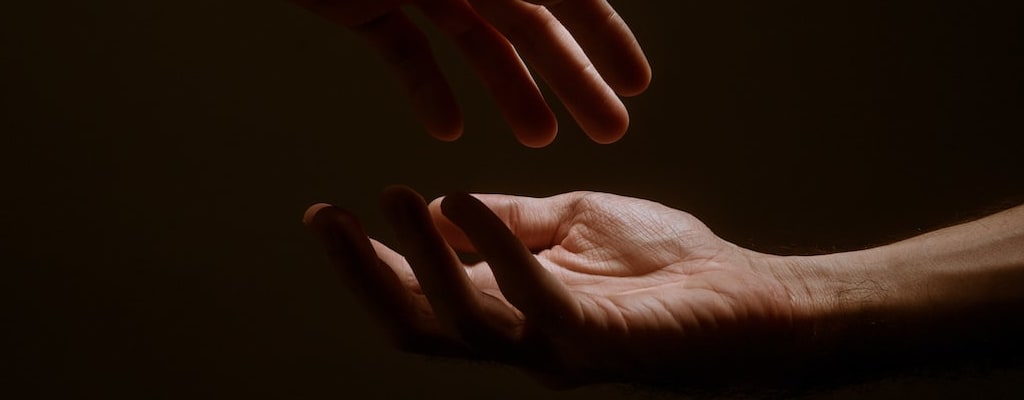rebound relationship: Idiom Meaning and Origin
What does ‘rebound relationship’ mean?
A rebound relationship refers to a romantic partnership that someone enters into shortly after the end of a previous relationship. It is often seen as a way to cope with the emotional pain and loneliness of the breakup, providing a temporary distraction or a sense of validation. However, these relationships tend to lack depth and genuine connection, as they are often founded on unresolved emotions and are not built on a strong foundation. They are often short-lived and may not lead to long-term happiness.

Idiom Explorer
The idiom "sexual relation" refers to the physical and emotional intimacy between two individuals, typically involving sexual activity. It is a common phrase used to describe the romantic or sexual connection within a relationship.
The idiom "second childhood" refers to a period in a person's life when they exhibit childlike behavior and interests, often due to old age or illness.
The idiom "say goodbye" means to part or separate from someone or something, often permanently. It implies a finality or ending to a relationship, situation, or opportunity.
The idiom "sawdust trail" refers to the path followed by a person during a religious revival or evangelistic campaign. It signifies the emotional and spiritual journey taken by individuals who are deeply involved in such religious activities.
A "roving eye" refers to someone who consistently looks at or is attracted to others in a flirtatious or romantic manner, often while already in a committed relationship.
The idiom "rough trot" refers to a difficult or challenging period of time or situation. It conveys the idea of facing hardships or experiencing a series of problems.
The idiom *rough patch* refers to a difficult or challenging period of time in someone's life or a situation. It implies that things are not going well and there are obstacles or problems to overcome.
The idiom "ride off into the sunset" means to have a happy or satisfying ending or departure, often in a romantic or idealized way.
The idiom "reap what one sows" means that a person will face the consequences of their actions, whether positive or negative.
The idiom "reap the whirlwind" means to face the negative consequences of one's actions or decisions, especially when they involve anger, violence, or aggression.
The Rollercoaster Ride
The idiom "rebound relationship" refers to a romantic relationship that is entered into shortly after the end of a previous relationship. It is typically used to describe a relationship that is formed as a way of rebounding or recovering from the emotional fallout of a breakup. While there may not be a fixed timeframe for what constitutes a rebound relationship, it is generally understood to occur within a relatively short period after a breakup.
The term "rebound" in the context of a relationship can be traced back to the sport of basketball, where it refers to gaining possession of the ball after a missed shot. This idea of bouncing back after a loss or setback is metaphorically applied to relationships, highlighting the concept of seeking comfort or solace in a new partnership shortly after the end of a previous one.
Rebound relationships are often characterized by emotional vulnerability and a desire to fill the void left by the previous relationship. People may enter into a rebound relationship as a means of distraction, to boost their self-esteem, or to alleviate feelings of loneliness. These relationships may provide temporary comfort or companionship but often lack the depth and emotional connection typically associated with long-term partnerships.
It is important to note that while rebound relationships can serve as a coping mechanism, they may not always have a positive outcome. The emotional wounds from a previous relationship may still be fresh, making it difficult for individuals to fully invest in a new partnership. In some cases, people may enter into a rebound relationship without fully understanding their motivations or processing their emotions from the previous breakup.
The idiom "sexual relation" is related to rebound relationships in the sense that it refers to a physical or sexual involvement between individuals. In a rebound relationship, there may be a desire for physical intimacy as a way to fill the void left by the previous relationship. However, it is important to recognize that a rebound relationship based solely on sexual relations may not provide the emotional connection and depth that is necessary for a fulfilling and lasting partnership.
Furthermore, the success or longevity of a rebound relationship is often uncertain. While some individuals may go on to develop meaningful and lasting connections with their rebound partners, others may find that the relationship quickly fizzles out once the initial emotional rush subsides. The limited emotional investment and potential for unresolved feelings from the previous relationship can create challenges and obstacles for the new partnership.
The idiom "friend with benefits" is also related to rebound relationships as it refers to a relationship where individuals are friends but also engage in casual sexual activity. In a rebound relationship, individuals may seek both the emotional support and physical intimacy that a friendship with benefits provides. However, it is important to recognize that a friend with benefits relationship may not provide the emotional depth and commitment that some individuals may desire after the end of a previous relationship.
A rebound relationship is a romantic relationship that is formed shortly after the end of a previous relationship. It is characterized by a desire to rebound or recover from the emotional fallout of the breakup. While rebound relationships can provide temporary comfort or distraction, they may lack the depth and emotional connection typically associated with long-term partnerships. The success or longevity of a rebound relationship is uncertain, with some relationships flourishing while others fade away. Nevertheless, rebound relationships continue to offer individuals a chance to heal, grow, and explore new possibilities in the aftermath of a breakup.
Example usage
Examples:
- After her break-up, Jane quickly entered into a rebound relationship to help her move on.
- Tom's rebound relationship ended quickly because he realized he wasn't ready to date again.
- Sarah's friends warned her about getting into a rebound relationship, but she didn't listen.
Analysis:
The idiom "rebound relationship" refers to a romantic relationship that someone enters into shortly after ending a previous one. It is often seen as a way to cope with the emotions and loneliness following a breakup. However, rebound relationships are often short-lived and may not be based on genuine feelings or long-term compatibility. People may engage in rebound relationships to distract themselves from the pain of a breakup or to boost their self-esteem. It is important for individuals involved in a rebound relationship to take time to heal and reflect on their emotions before committing to a new relationship.
More "Relationships" idioms



